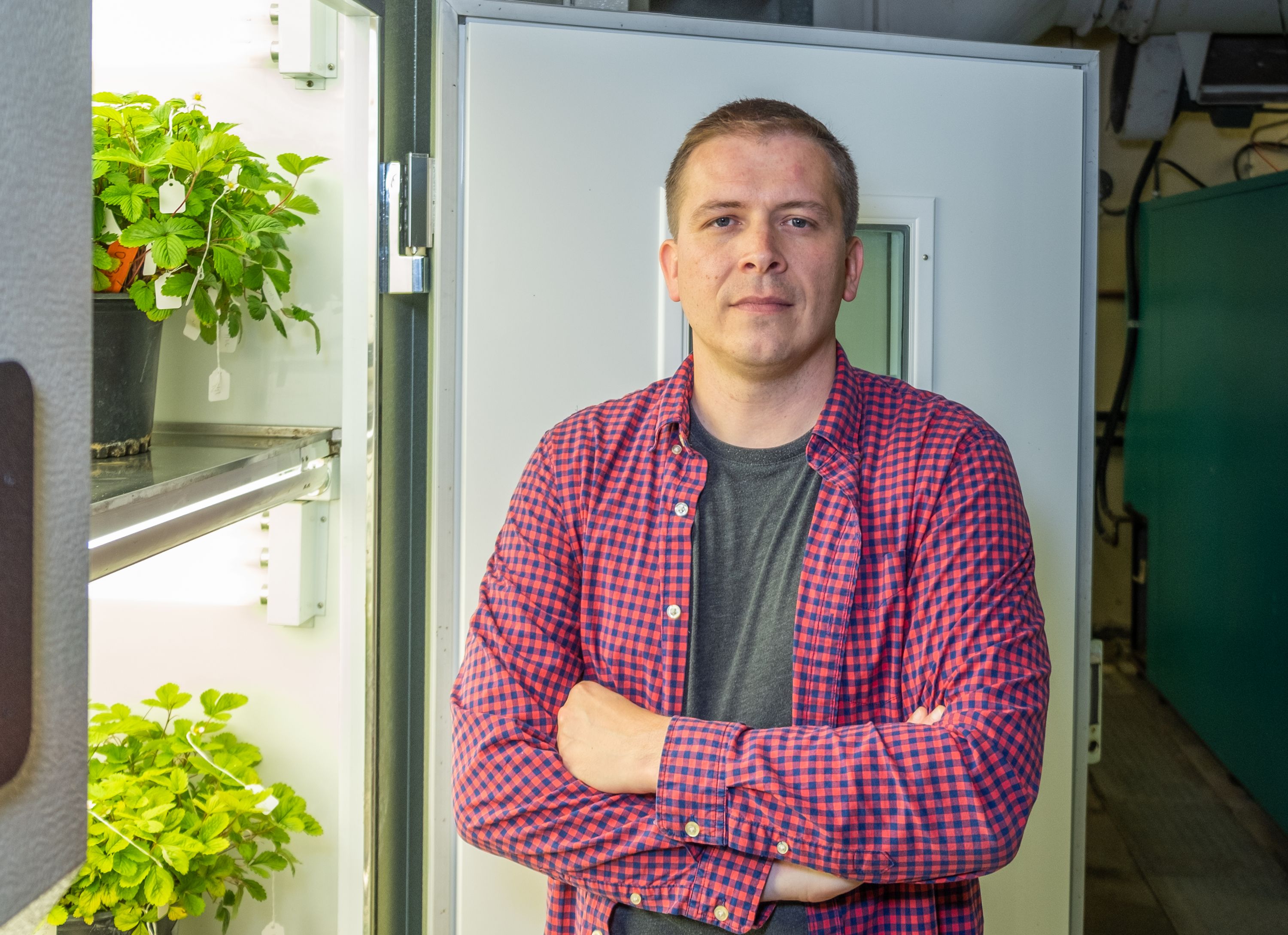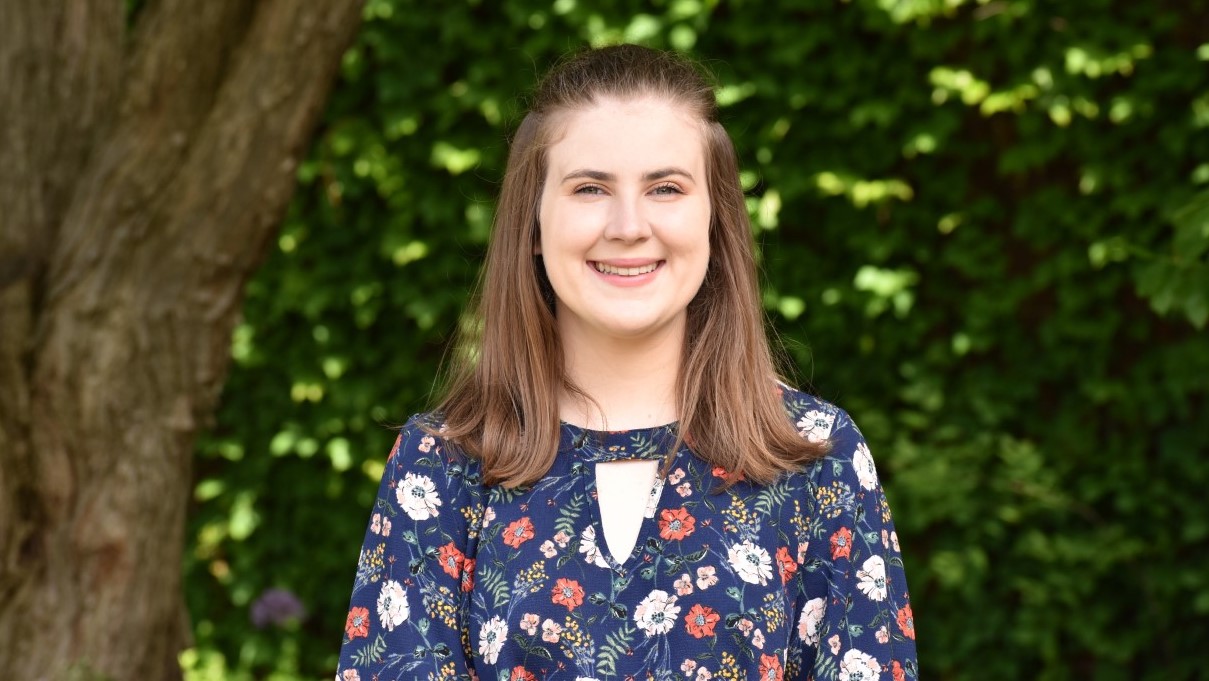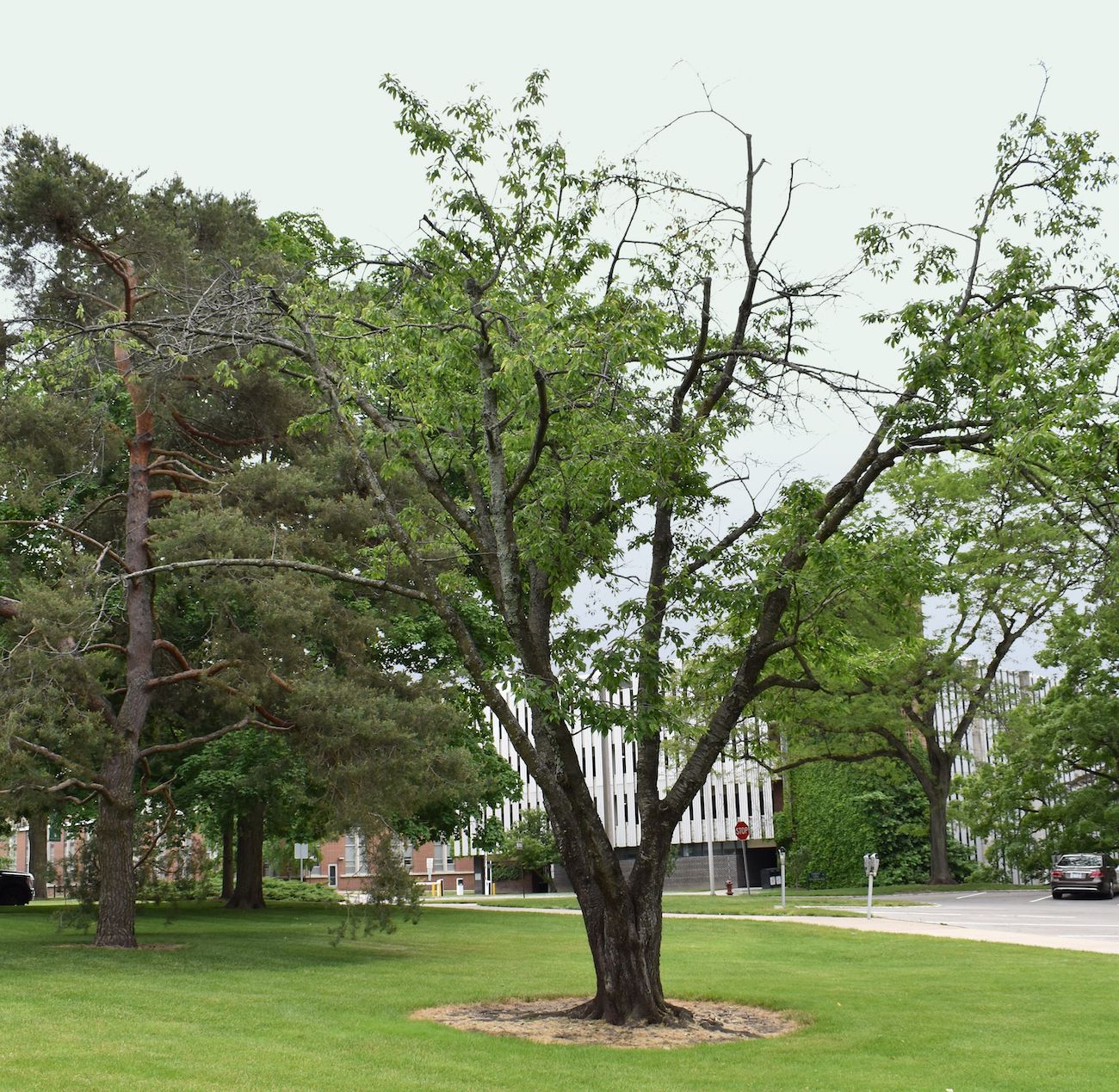During undergraduate years, gaining lab experience and signing your name to a scientific publication can give your resume a well-deserved push, and even help open doors to a new career path or Ph.D. program.

At Michigan State University, Molecular Plant Sciences faculty member Patrick Edger teaches an undergraduate Honors College course that creates these kind of opportunities. Students in his molecular phylogenomic and evolution class work alongside teaching assistants on a semester-long research project. In Spring 2022, the research focused on finding the parental species of the popular sour cherry — a crop of great economic and cultural importance to Michigan.
"It's an absolute pleasure and joy to teach this undergraduate course — which provides students with unique, hands-on research experience," Edger said. "I'm very proud of all my students — they collected and analyzed the data and ultimately published a manuscript that reports their findings in a great peer-reviewed journal."
Teaching assistants MacKenzie Jacobs and Kevin Bird helped produce the research paper that was published in "Plants People Planet" in May 2022.
Sour cherry, scientifically known as Prunus cerasus, is a popular fruit used in cooking and baking. The crop plant was believed to be the offspring of two wild cherry species, but for a long time no one had definitively proven that these were the parents.
“Having a better understanding of how agriculturally relevant crops came to be can provide us with more insight as to how specific traits arose and problems the plants might face, such as pathogens, that might be hurtful to the agricultural species,” said Jacobs, an MPS graduate student in the Department of Biochemistry and Molecular Biology in the College of Natural Science. “Knowing the history that led us to what we have today can be crucial to improvement and sustainability of the crops we know and love.”
This study used phylogenomics — a research technique that looks at the evolutionary history and genomics of a plant together — to determine who the parents were. By looking at similarities within the genes of the sour cherry tree and other plants within the same group, they determined that the mother donor is Prunus fruticose and the father donor Prunus avium, the two wild-type cherry species long suspected of to be the parents.

In the classroom, students were instrumental in this research. Over the course of the semester, they were taught many basics of laboratory work, which included areas such as general biology topics and reading and writing scientific articles. Jacobs designed a pipetting competition where the students worked to see who could use the tools the most accurately. For some, it was their first time using this basic technique, and many of them will go on to use this later in their scientific careers.
“Our hope is that these courses lay the foundation for an academic career characterized by inquiry and scholarship,” said Justin Micomonaco, assistant dean of the MSU Honors College. “Aimed at first and second-year students, honors research seminars often provide students with their first exposure to university-level research, where they develop foundational inquiry skills and excitement for engaging in scholarly activities. For many students, these courses catalyze subsequent research engagement, enabling them to conduct higher level scholarship as upper division students.”For Jacobs, teaching alongside her PI Patrick Edger and designing laboratory experiences for the students reinforced her plans after graduation.
“My goal is to be a professor at a primarily undergraduate institution, so having hands-on experience with what students need to succeed is great,” she said. “It blows me away how quickly students can absorb information and ask thoughtful questions that, in some cases when they’re answered, I learn a bit myself. Seeing the students’ progression from more of a beginner level to being very knowledgeable on the topic was amazing.”
This story originally appeared on the College of Natural Science website.
